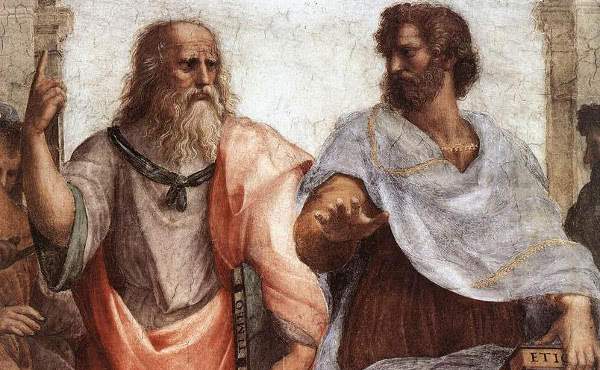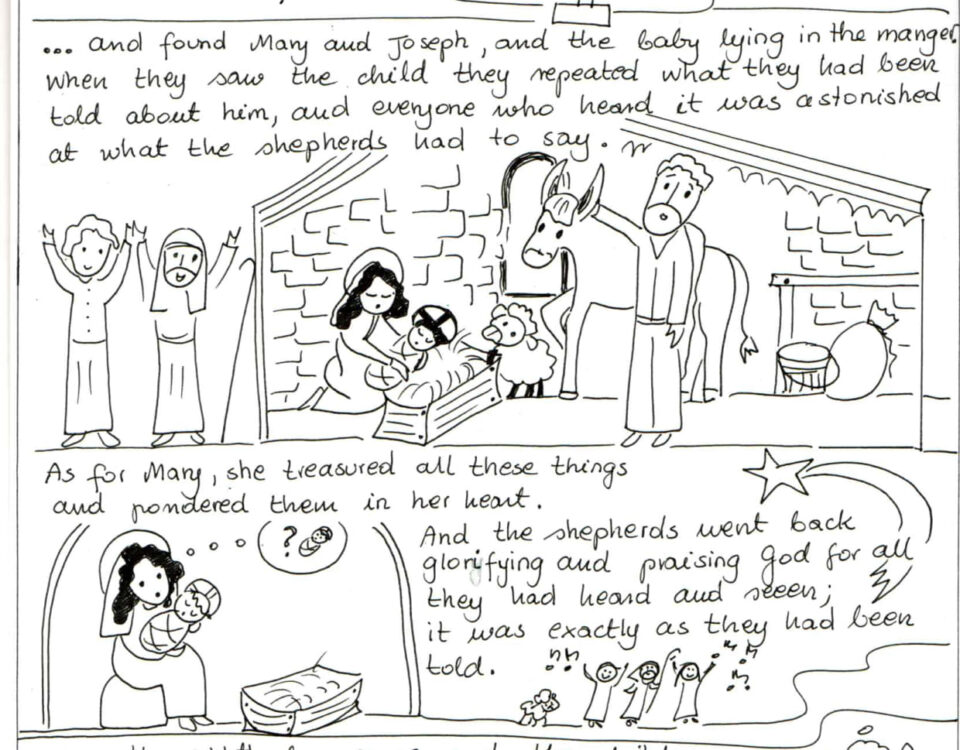Divine Retreat Centre UK – Official Website
The Kingdom of God – The Person
October 24, 2022The Kingdom of God – The Church
October 24, 2022Jesus was announced King on the very day of his birth. “Wise men from the East came to Jerusalem, asking, “Where is the child who has been born king of the Jews? For we observed his star at its rising, and have come to pay him homage.”” (Matthew 2:1-2). For a long time, Jesus’ life with his parents remained private. “Then he went down with them and came to Nazareth, and was obedient to them. His mother treasured all these things in her heart. And Jesus increased in wisdom and in years, and in divine and human favor” (Luke 2:51-52).
At the time, very few people knew about Jesus. People barely knew what kind of king the child would become, let alone the scale of the kingdom he was about to establish. But life went on as usual, as it normally did for a child being raised in the Jewish society and custom. Eventually, “the child grew and became strong, filled with wisdom; and the favor of God was upon him” (Luke 2:40). At the age of 30, Jesus’ life took a dramatic turn when he announced His kingdom – the kingdom of God, in the beginning of his ministry. “Jesus came to Galilee, proclaiming the good news of God, and saying, “The time is fulfilled, and the kingdom of God has come near; repent, and believe in the good news”” (Mark 1:14-15).
The Jews, by this time, were used to kings and kingdoms that showed military and political strength, after having been invaded by the Babylonians, Persians, Greek and Romans. They were used to being conquered and controlled by powerful nations – nations that were gentile, pagan and, at the worst, ungodly in their ways. At the coming of Jesus and His proclamation of the kingdom of God, the people must have felt their faith revived by the hope they had in His words.
The promise of the new and eternal kingdom – the kingdom of God, had long been established in the Jewish tradition. It was written in the prophecy of Daniel. “And in the days of those kings the God of heaven will set up a kingdom that shall never be destroyed, nor shall this kingdom be left to another people. It shall crush all these kingdoms and bring them to an end, and it shall stand forever” (Daniel 2:44). All the Jews, in every generation, had been anticipating the kingdom of God. It’s in the very heart of their prayers, sacrifices and every act of piety.
When the time of fulfillment had come, the revelation was initially made to one person – a woman. “The angel said to her, “Do not be afraid, Mary, for you have found favor with God. And now, you will conceive in your womb and bear a son, and you will name him Jesus. He will be great, and will be called the Son of the Most High, and the Lord God will give to him the throne of his ancestor David. He will reign over the house of Jacob forever, and of his kingdom there will be no end” (Luke 1:30-33). Mary, being a woman, had no voice in the Jewish society, but it didn’t make the revelation any less than what it is. Truth is truth: the promise of the eternal kingdom had been fulfilled in Jesus Christ, who is King. But what is his kingdom? What is it like? Where is it? How can it be found?
1. Many explanations about the kingdom of God are hidden in Jesus’ parables. From the parables, we learn through many analogies by Jesus of God’s kingdom, by His use of vivid illustrations. First, the Kingdom of God involves having a spiritual experience that begins with receiving the word of God. “Now the parable is this: The seed is the word of God” (Luke 8:11). When the word has lodged very deeply in one’s heart, it grows and bears the fruit of good works. “But as for that in the good soil, these are the ones who, when they hear the word, hold it fast in an honest and good heart, and bear fruit with patient endurance” (Luke 8:15).
2. The kingdom of God involves having a deep spiritual conversion through the word of God. It’s the kind of conversion that makes us give everything we have in exchange for the promise that the word of God holds. “The kingdom of heaven is like treasure hidden in a field, which someone found and hid; then in his joy he goes and sells all that he has and buys that field” (Matthew 13:44). This conversion involves trading this life’s riches for the eternal riches of God’s kingdom. “Again, the kingdom of heaven is like a merchant in search of fine pearls; on finding one pearl of great value, he went and sold all that he had and bought it” (Matthew 13:45-46).
3. The kingdom of God involves the growth of the word of God within one’s heart. It’s a growth that seems to occur through a natural force – the grace of God. Then, sooner or later, it grows big enough that it becomes difficult to contain within one’s heart. It becomes necessary to confess the name of Jesus and share the gospel for the benefit of others, like the yeast that leavens the dough. “He told them another parable: “The kingdom of heaven is like yeast that a woman took and mixed in with three measures of flour until all of it was leavened” (Matthew 13:33). The growth of our faith in Jesus leads us into the maturity of our spirituality and into Christian mission. That means, helping others in the formation of their faith and spirituality and also helping them grow in the knowledge of God by knowing the person of Christ. In the parable of the mustard seed, the Kingdom of God begins as the “smallest of all the seeds, but when it has grown it is the greatest of shrubs and becomes a tree, so that the birds of the air come and make nests in its branches” (Matthew 13:32).
4. The word of God is the very person of Jesus Christ Himself. His Word is the building blocks of the kingdom of God. “Jesus went throughout Galilee, teaching in their synagogues and proclaiming the good news of the kingdom and curing every disease and every sickness among the people” (Matthew 4:23). His teaching and proclamation of the good news comes with “signs” of his kingdom – healing and deliverance. “Seek and read from the book of the Lord: Not one of these shall be missing; none shall be without its mate. For the mouth of the Lord has commanded, and his spirit has gathered them” (Isaiah 34:16). The word of God always comes with a “mate” or a confirmation of its reality. The kingdom of God is manifested in the person whose heart has experienced the riches and glory of the word of God, the reign of Jesus Christ.
5. When Jesus came to the synagogue and proclaimed the word of God from the scriptures, he said, ““The Spirit of the Lord is upon me, because he has anointed me to bring good news to the poor. He has sent me to proclaim release to the captives and recovery of sight to the blind, to let the oppressed go free, to proclaim the year of the Lord’s favor” (Luke 4:18-19). He went on to say to them, “Today this scripture has been fulfilled in your hearing” (Luke 4:21). Jesus’ proclamation of God’s kingdom is contrary to the other kingdoms that had conquered Israel. In the kingdom of God, He is not conquering nations. He is conquering us as individuals, by healing our spiritual sickness produced by sin and by setting us free from every bondage that separates us from the presence of God.
6. The kingdom of God is established within us through our baptism and the confession of our faith in Jesus Christ. “At the name of Jesus every knee should bend, in heaven and on earth and under the earth, and every tongue should confess that Jesus Christ is Lord, to the glory of God the Father” (Philippians 2:10-11). Through our baptism, we receive the gift of the Holy Spirit, the Spirit of adoption that welcomes us into the family of God. “For you did not receive a spirit of slavery to fall back into fear, but you have received a spirit of adoption. When we cry, “Abba! Father!”” (Romans 8:15). As children of God, we become “heirs according to the hope of eternal life” (Titus 3:7). We become “heirs of the kingdom that God has promised to those who love him” (James 2:5). We become “heirs of the gracious gift of life” (1 Peter 3:7).
7. We are able to claim the gifts of the kingdom of God through the merits of Jesus’ crucifixion. By His crucifixion, we have been forgiven of our trespasses and reconciled with God. “When you were dead in trespasses and the uncircumcision of your flesh, God made you alive together with him, when he forgave us all our trespasses, erasing the record that stood against us with its legal demands. He set this aside, nailing it to the cross. He disarmed the rulers and authorities and made a public example of them, triumphing over them in it” (Colossians 2:13-15)
8. When the kingdom of God has come upon us, we become a new creation. “So, if anyone is in Christ, there is a new creation: everything old has passed away; see, everything has become new!” (2 Corinthians 5:17). As a new creation, we are “set free from its bondage to decay and will obtain the freedom of the glory of the children of God” (Romans 8:21). Since we have been set free, we have the peace of Christ that makes us unaffected by the persecution and suffering of this world, including our personal feelings of anxiety, worry, tension, guilt, or any kind of negativity. “There is therefore now no condemnation for those who are in Christ Jesus” (Romans 8:1).
9. The kingdom of God is a spiritual kingdom that we experience within our hearts and manifests in us through our imitation of the virtues of Christ. “For the kingdom of God is not food and drink but righteousness and peace and joy in the Holy Spirit” (Romans 14:17). Even in the midst of our trials, the presence of the kingdom of God within us will overpower our weaknesses with an unexplainable, incomprehensible, overwhelming spiritual strength. This is best exemplified in the lives of the saints, in their bold witnessing to Christ.
10. Lastly, the word of God is the very person of Jesus Christ himself. “In the beginning was the Word, and the Word was with God, and the Word was God” (John 1:1). Jesus is the “reflection of God’s glory and the exact imprint of God’s very being, and he sustains all things by his powerful word” (Hebrews 1:3). Therefore, it is His Word that serves as the building blocks of the kingdom of God. Moreover, the word and doctrine of God that He passed on to His apostles, which we have received and it dwells richly within us, make us all members of the kingdom of God. United by His word, we become a spiritual body of the faithful, where the 12 apostles stand as the 12 pillars of the “church of the living God, the “pillar and bulwark of the truth” (1 Timothy 3:15).
Conclusion
The kingdom of God, is to believe in Jesus Christ as the highest power and the supreme good. This is the boldness of faith that our Lord is seeking in us as He intercedes on our behalf to the Father: “let your kingdom come, your will be done on earth as it is in heaven”. This is the faith that moves mountains; this is the faith that makes the storm still; this is the faith that makes us walk on water; this is the faith that makes the impossible possible.




